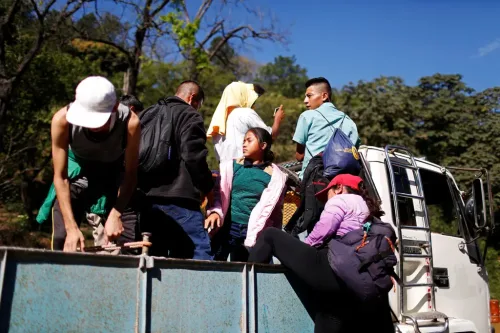On October 8, 2024, the U.S. signed a Customs Mutual Assistance Agreement (CMAA) with El Salvador. This agreement aims to improve trade facilitation and border security. Critics argue it may not effectively address the root causes of illegal immigration and crime, according to an Oct. 8 press statement.
Overview of the CMAA
The CMAA was signed by Troy Miller, acting head of U.S. Customs and Border Protection (CBP), and El Salvador’s officials, including Foreign Minister Alexandra Hill. This agreement allows both countries to share information about customs offenses. It aims to strengthen cooperation on key issues like border security and drug trafficking.
Benefits of the Agreement
Miller highlighted the partnership’s goal: stronger borders and more efficient trade. He believes this will benefit consumers and businesses in both nations. El Salvador’s Finance Minister, Jerson Posada, noted that the CMAA would streamline customs processes. This will enhance transparency and compliance with trade regulations.
Criticism from Opponents
Critics of the Biden-Harris administration see the CMAA as a misguided focus. They argue that it diverts attention from domestic issues. Concerns include illegal immigration, drug trafficking, and economic challenges in Central America. Critics assert that while trade agreements are important, they do not address the root causes of migration.
A Reactive Approach?
Some argue that the administration is reacting rather than taking proactive steps. The CMAA may not effectively tackle poverty, violence, and political instability in El Salvador. Critics question the effectiveness of such agreements, suggesting they may only be symbolic gestures.
Need for a Comprehensive Strategy
While the CMAA represents enhanced cooperation, critics highlight the need for a broader strategy. They argue that U.S. policy should address economic development and social stability in Central America. Without this, challenges like migration and crime may continue.
